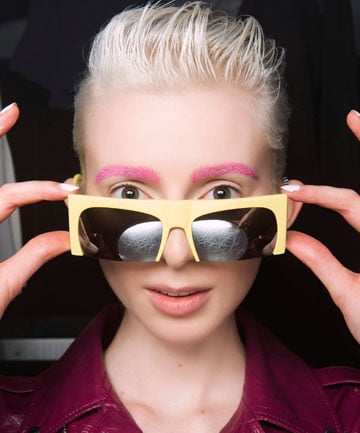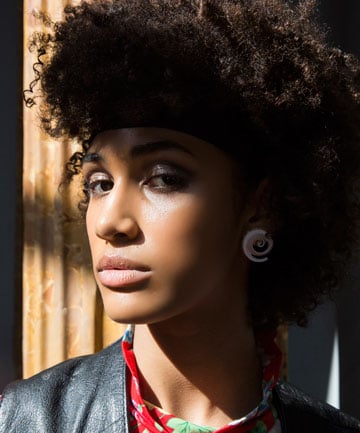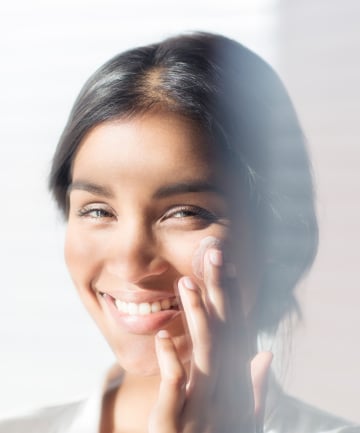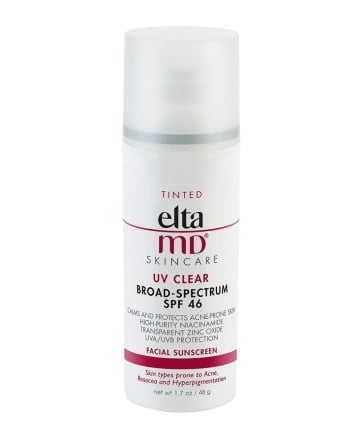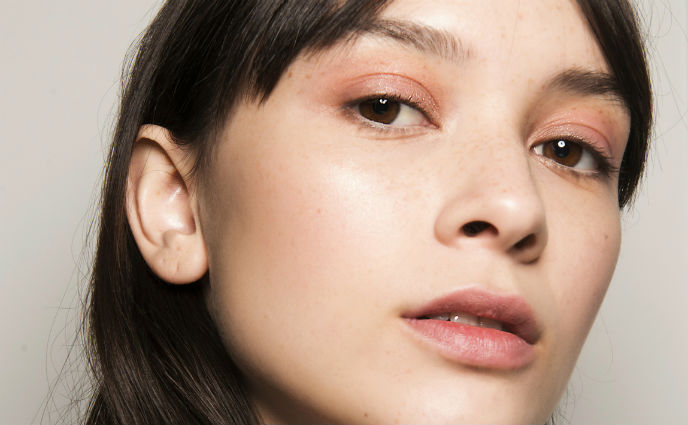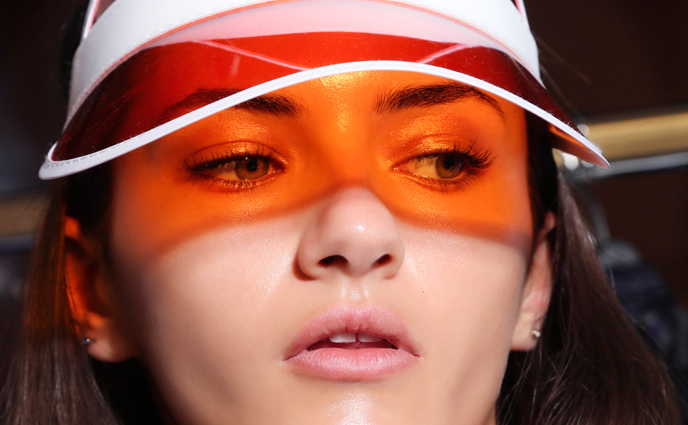Wrinkles aren't the only signs of aging caused by the sun. "Sunscreen can also protect your skin from developing brown pigmentation or 'sun spots' which aesthetically age the skin," Nussbaum says. UVA rays are the ones that lead to dark spots and blotchy hyperpigmentation, says Palm. "UVA causes DNA changes in melanocytes, the pigment-producing cells of our body," she says.
Image via Imaxtree
Image via Imaxtree
All that damage adds up and if you keep exposing yourself to UV rays sans any protection, expect major skin issues down the road. "UV damage has been shown to be cumulative, meaning every exposure adds up to more and more damage," says Erum Ilyas, MD, a dermatologist at Montgomery Dermatology in Pennsylvania. Ilyas offers this analogy to explain the cumulative damage caused by the sun: "The best way to visualize this is to think of a town after a storm comes through that causes some damage. If there are no other storms that come through for a long time, then the town will have the time and resources to repair the damage and move on. However, if the town is subjected to one storm after the next, before they are finished repairing from the last, at some point the time and resources to fully recover will be lost." This is what happens to the DNA of our cells with repetitive UV exposure. "Every time your DNA starts to repair itself, another exposure triggers further damage making it harder and harder to heal," Ilyas says.
Image via Imaxtree
Image via Imaxtree
While protecting yourself from skin cancer and preventing premature signs of aging are the major benefits you get from applying sunscreen every morning, there are some additional reasons you should grab a tube the next time you're getting ready. Many of today's sunscreen formulations have added ingredients that can address a variety of skin issues. Mineral sunscreen agents, for example, are anti-inflammatory and can help to calm irritated skin, Palm says. Many sunscreen formulations also contain moisturizing ingredients like hyaluronic acid to improve the skin barrier, as well as antioxidants such as vitamin C and green tea to protect against damaging free radicals.
Image via Hoxton/Tom Merton/Getty
Image via Hoxton/Tom Merton/Getty
Before you can apply your morning SPF, you need to figure out which sunscreen is right for you. Nussbaum says you should always reach for one that has a broad-spectrum label, as that means it shields your skin from UVA rays (the ones that age you) and UVB rays (the ones that cause burns).
One of our favorite daily sunscreens is EltaMD UV Clear Broad-Spectrum SPF 46 Tinted, $35, which is formulated for skin types prone to skin conditions like acne and rosacea. In addition to providing sunscreen protection with zinc oxide, it's also formulated with soothing niacinamide, moisturizing hyaluronic acid and anti-aging vitamin E.
As for how to use sunscreen, the instructions are simple. "Apply a broad-spectrum sunscreen with an SPF of 30 or higher every single day, 365 days a year," Frey says. "Apply it liberally and apply it often." So make sure you carry it in your purse for mid-day reapplications.
Buy now
One of our favorite daily sunscreens is EltaMD UV Clear Broad-Spectrum SPF 46 Tinted, $35, which is formulated for skin types prone to skin conditions like acne and rosacea. In addition to providing sunscreen protection with zinc oxide, it's also formulated with soothing niacinamide, moisturizing hyaluronic acid and anti-aging vitamin E.
As for how to use sunscreen, the instructions are simple. "Apply a broad-spectrum sunscreen with an SPF of 30 or higher every single day, 365 days a year," Frey says. "Apply it liberally and apply it often." So make sure you carry it in your purse for mid-day reapplications.
Buy now



